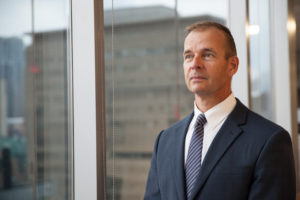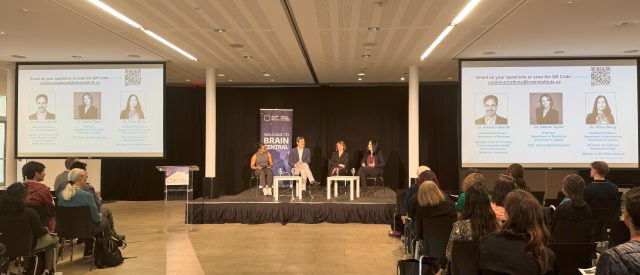
You know the phrase, “two heads are better than one”? Sometimes, many heads are needed to solve a problem; this is especially true for the problems we face in brain health. For this reason, OBI believes in a collaborative model to solve complex problems by forming sustainable partnerships in research, commercialisation and care. In this case, many brains that think differently are better than one.
Let’s think of these complex problems like an escape room – where you have a big goal with small objectives along the way. In order to successfully unlock the door, you must work as a team to solve as series of puzzles. Done well, players work together, share insights with their team and build off of each other’s contributions – solving puzzles together until they escape.
The object of the game is not to lay claim on every riddle a person solves on their own but to succeed in escaping the room within an assigned timeframe – as a team. Applying this same logic to brain research, we can appreciate that working together will take us further than working alone, especially when we have something much greater at stake – a person’s health and quality of life.
Similarly, with changing attitudes, we’ve observed a shift in the research landscape – a push for collaboration, open science, and data sharing. This works best when all the heads at the table are sharing what they are working on, building on each other’s knowledge and insights, no different than the escape room. Biomedical research is a team sport.
Let’s complicate this further. Imagine, all the people stuck in this room speak different languages. To help communicate across language barriers, they would have to create a standard code. We also have ‘language barriers’ in research. We call them silos. They exist between brain disorders, research methods and disciplines, and especially, across sectors. We all speak English, but our siloed worlds have so much of their own jargon that we might as well be speaking different languages. But the commonality is data; the currency we all value in health and research.
Data is truly the missing link to breaking down barriers. Data standardisation in the realm of neuroscience helps us amalgamate and analyse under-utilised high-quality data resources from a range of neurological disorders, with the potential to answer many questions because we can speak a common dialect. It is for that reason that OBI developed Brain-CODE, a central platform that can curate, collect and analyse large chunks of data – a solution to aggregate the little objectives achieved along on the way to the big shared goal. Acting as the translator across disorders, disciplines, and sectors, Brain-CODE has the potential to tell a story unheard of before. It provides the final key to solve the puzzle before escape, and needs all our brains to help to solve it.
There is no literal clock ticking down on brain research, because there is no one final conclusion, but there is a sense of urgency shared by the research, clinical and patient communities. If we wish for change to happen faster, then we ought to be inventive in our approach to tackling these problems like in the escape room, no matter how radical or time-consuming. And it’s easier done by supporting different means of scientific inquiry, similar to what we have built at OBI, an integrated community of practice, truly a winning team in this high stakes team sport.


